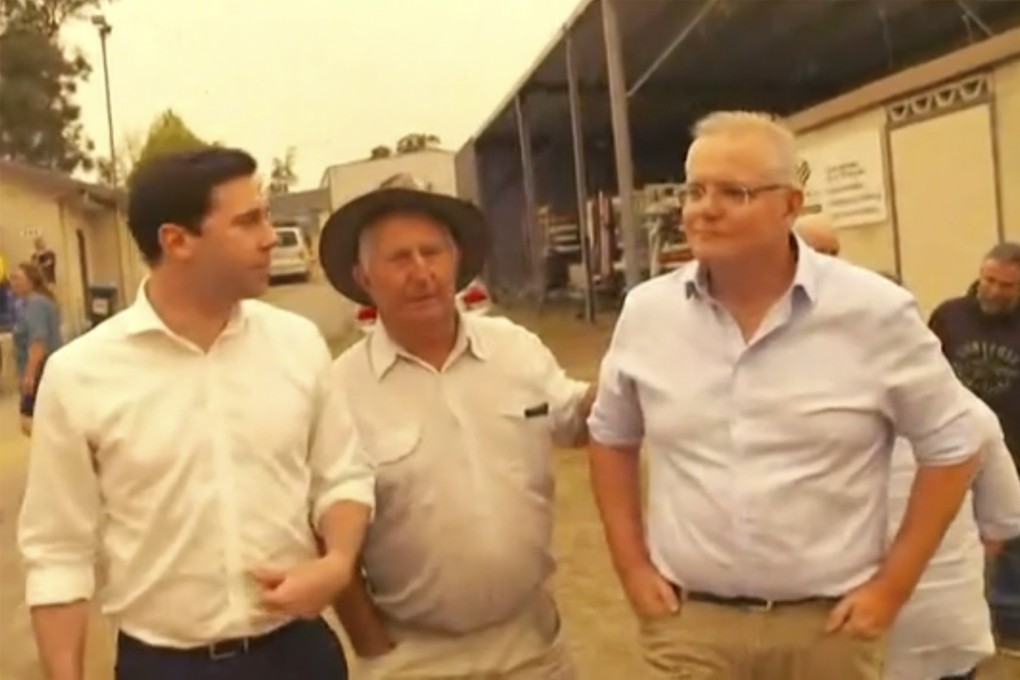Australia fires: furious residents jeer PM Scott Morrison when he visits ravaged town
- Eight months after surprise election win, clumsy handling of crisis has brought Morrison’s political honeymoon to an abrupt end
- Fires have taken a huge toll: 19 people are dead and 28 missing, more than 1,000 houses burnt and an area twice the size of Wales has been destroyed

Last month, Australia’s unprecedented wildfire crisis prompted Prime Minister Scott Morrison to cut short a vacation to Hawaii. It also abruptly ended his political honeymoon.
Eight months after being lauded a conservative hero by engineering an unexpected victory, Morrison’s clumsy handling of the crisis – highlighted by his trip to Hawaii just days after declaring a national disaster – has stoked criticism over his political judgment, including by members of his own party.
The prime minister was heckled on Thursday by angry residents when he visited the bushfire-hit town of Cobargo, where two people died earlier this week, while others declined to shake his hand and called for more resources to tackle the disaster.
Locals yelled at him, made obscene gestures and called him an “idiot” and worse. They jeered as his car left. In the New South Wales town of Quaama, a firefighter refused to shake hands with him.
“Every single time this area has a flood or a fire, we get nothing. If we were Sydney, if we were north coast, we would be flooded with donations, with urgent emergency relief,” a resident said in Cobargo.
Speaking in a television interview from the fire-ravaged area on Friday, Andrew Constance, the transport minister for New South Wales state which is governed by Morrison’s Liberals, said the prime minister “probably deserved” his treatment the previous day.
Australia’s unprecedented wildfire crisis has taken a huge toll: 19 people are dead and 28 missing, more than 1,000 houses burnt, and an area twice the size of Wales has been destroyed in one state alone.